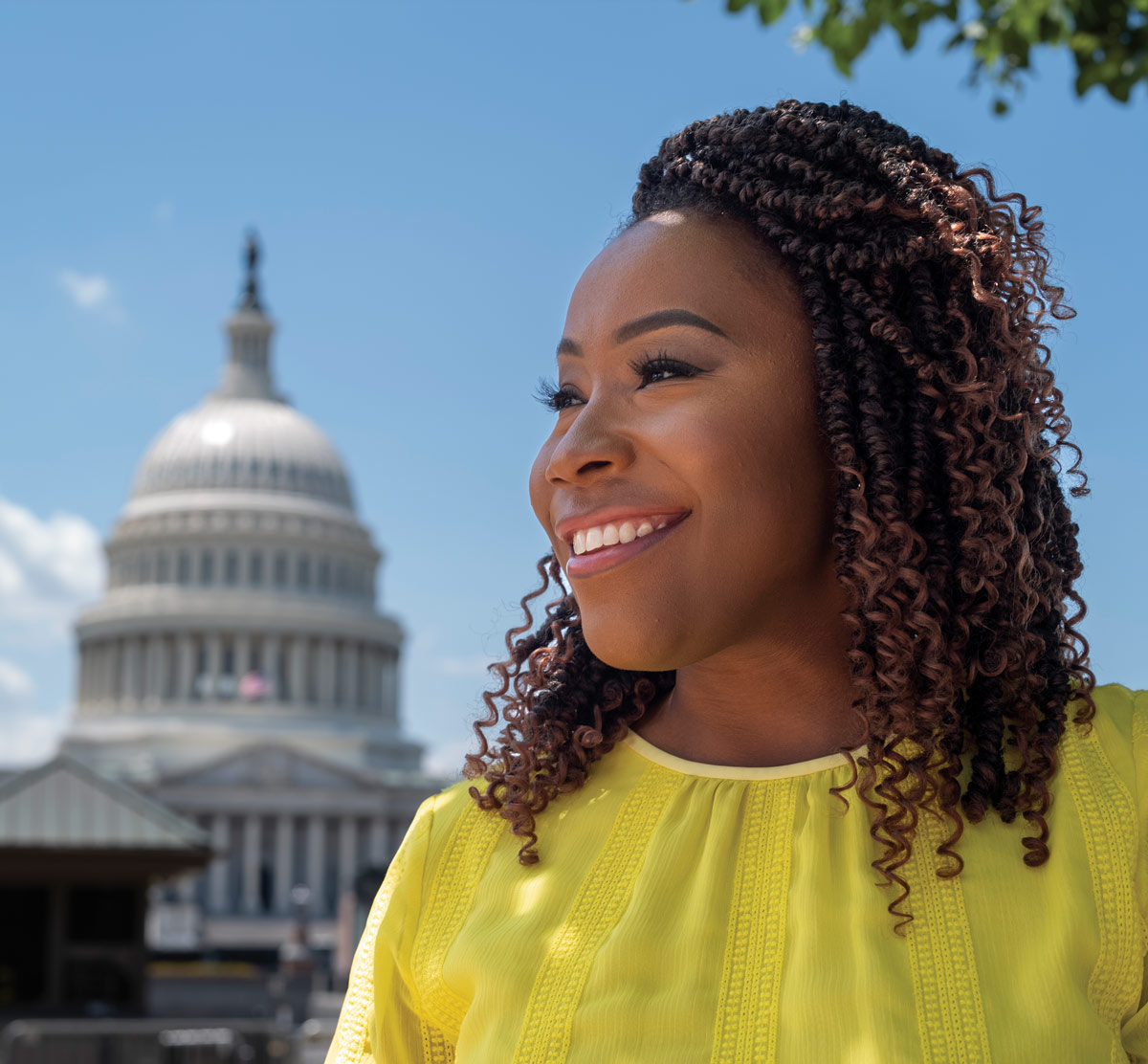getting the scoop
Talking Politics
WHEN EVA MCKEND ’11 pushed her way through a throng of reporters at a news conference in 2019 to get closer to then-Senate Majority Leader Mitch McConnell, she had one pressing question: Where did he stand on reparations for Black Americans?
McConnell responded that he opposed them, offering his first public remarks on the issue. His answer to McKend, a novice congressional correspondent for a regional cable news network, went viral. It happened at a time when talk of reparations had risen from advocacy among its proponents to a House subcommittee hearing in Congress.

LAURENCE KESTERSON

getting the scoop
Talking Politics
McConnell responded that he opposed them, offering his first public remarks on the issue. His answer to McKend, a novice congressional correspondent for a regional cable news network, went viral. It happened at a time when talk of reparations had risen from advocacy among its proponents to a House subcommittee hearing in Congress.
“That was a really exciting moment,” says McKend, who today is a national politics reporter at CNN, where she covers a variety of stories, including campaigns and elections. Her reporting and analysis is regularly featured on CNN, and she also appears on PBS’s Washington Week and WAMU/NPR’s 1A news program.
“As a Black reporter … I might be asking questions that other people are not necessarily going to ask,” she says. “I thought it was a perfectly legitimate question to ask McConnell. … He was significant in terms of either allowing policy to move forward or shutting it down” if it reached the Senate.
McKend’s penchant for asking uncomfortable questions was honed as early as fourth grade, when her interest in the inequities of criminal justice was piqued and she recognized the power of the media.
“I’ve always gravitated toward marginalized groups, their stories and their struggles,” she says. Asking those types of questions is not easy, she says, because reporters still have to maintain a relationship with the politician. “You are really prized in this industry for the scoops that you get, the stories you break, and that’s all relationship-driven,” she says. “Sometimes that makes people — maybe even unconsciously — apprehensive about asking certain questions because they’re trying to maintain a relationship. I try to strike the right balance.”
Born in New York City, McKend was an activist student at a predominantly white private school in Manhattan. At 16, she worked at Essence magazine after persuading a fellow student’s parent to get her an internship. At Swarthmore, she created a project on representation of Black women in the media, and received a fellowship to earn a master’s at S.I. Newhouse School of Communications in Syracuse, N.Y. When she worked in Vermont, she was the only Black female news anchor in the state. She joined Spectrum in 2018 and won awards for her reporting on Black hemp farmers in Kentucky.
Swarthmore “pushed me and challenged me to always think about diversity in a really broad way, not only racial diversity, but also what it means to live being low-income, what it means to be a first-generation college student — which I am not — what it means to be LGBTQ, what it means to live with a disability,” she says.
McKend is excited by the new generation of Black leaders in politics. “Younger leaders have been able to push the envelope in a way that has really showed the strength of having generational coalitions,” she says. “That’s a fascinating space to watch as a political reporter, the way in which younger members of Congress push back on the status quo and fight for marginalized groups.”